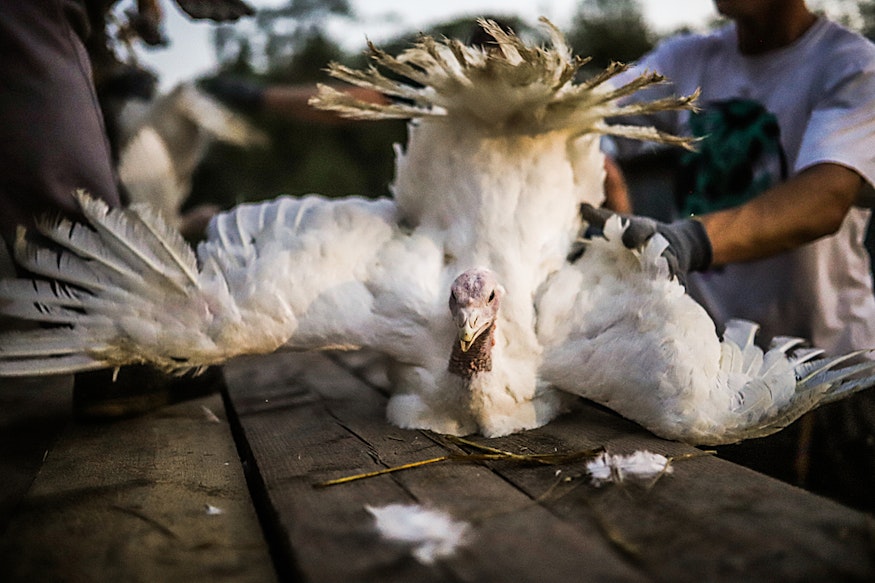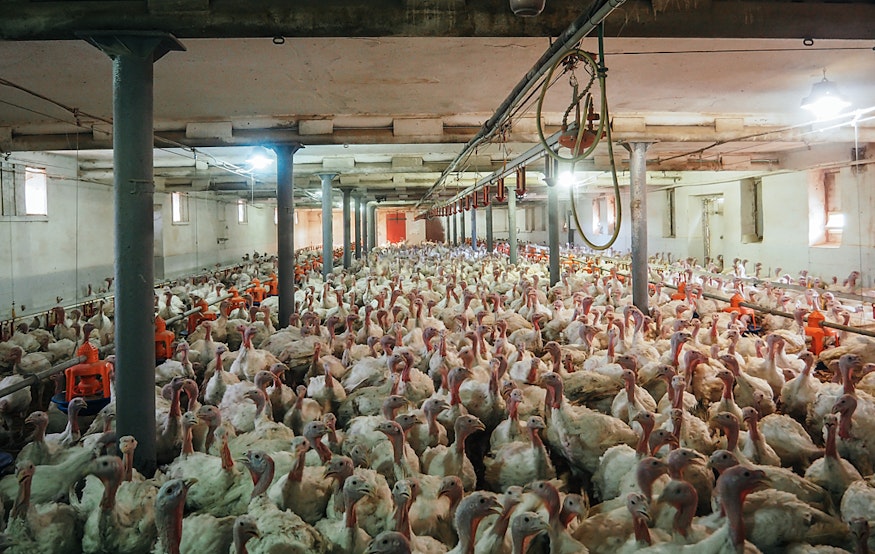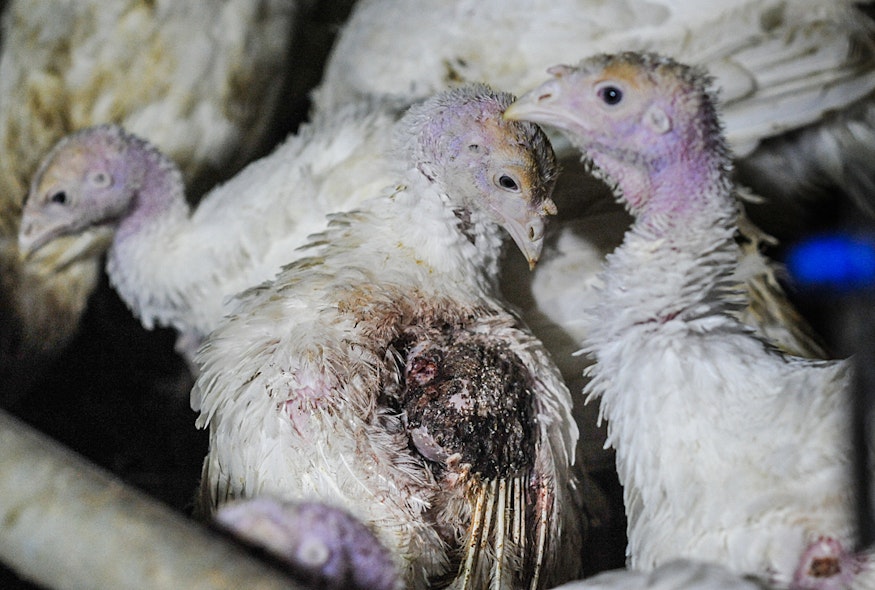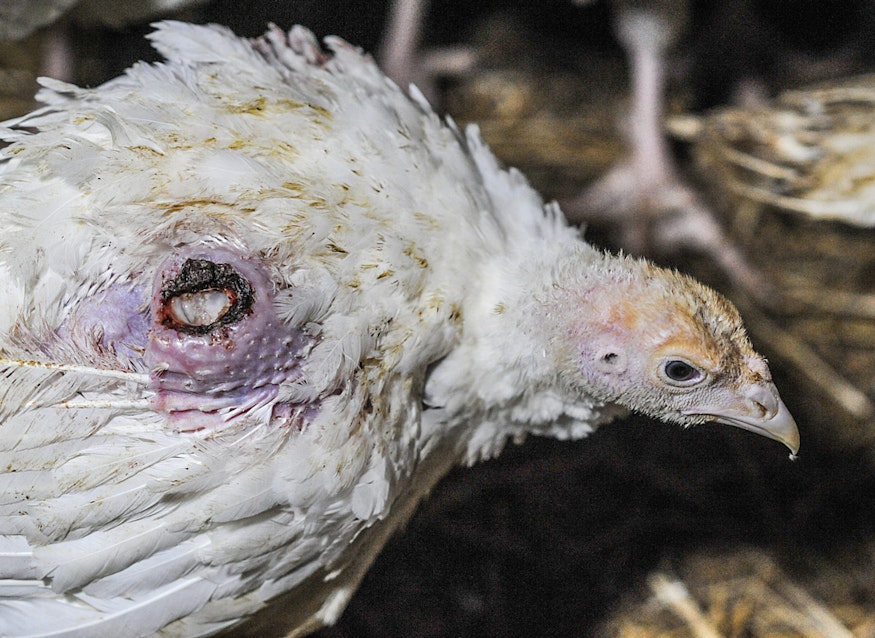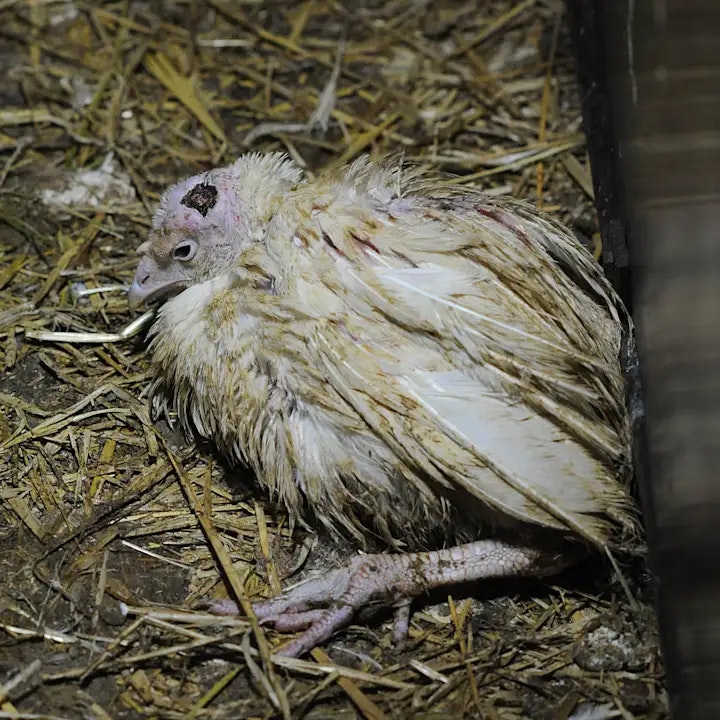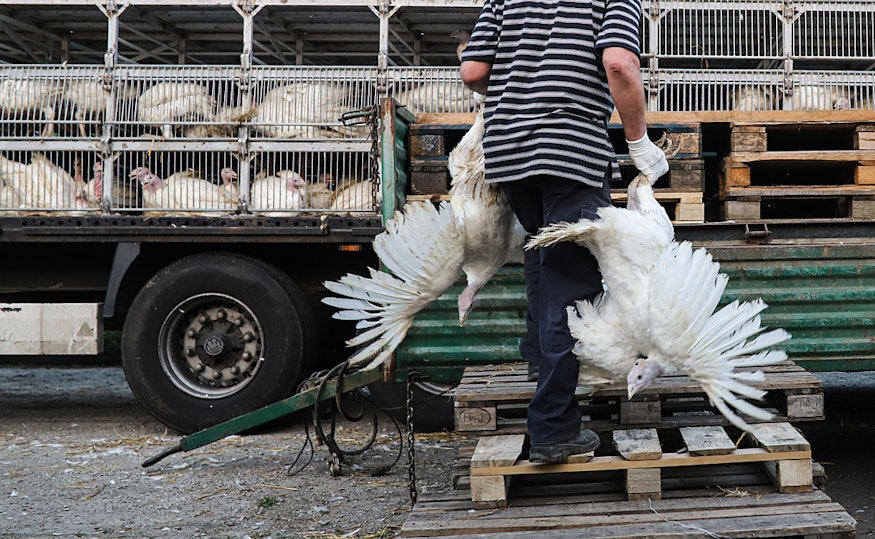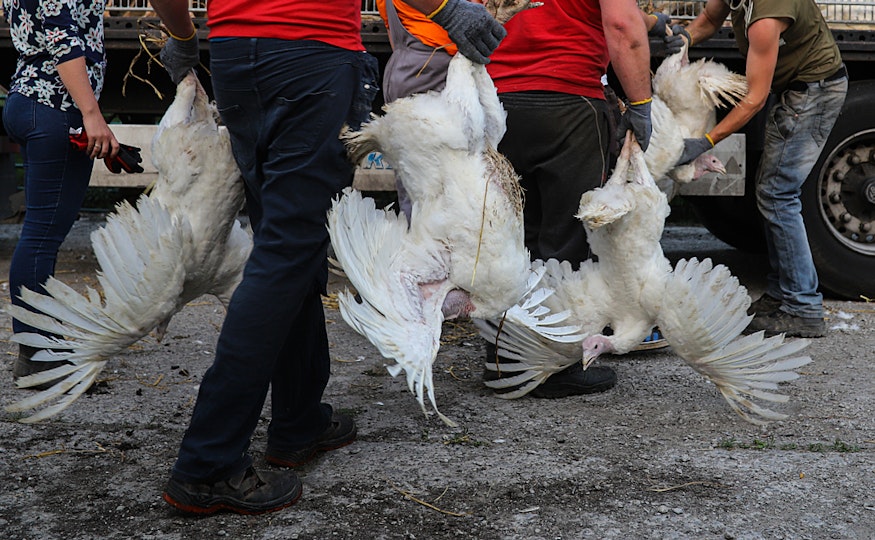
Green Energy
Jobs, growth and energy independence start with green power
February 19, 2026
Sounds extreme, right? But that’s the grim reality for most of the 14 million turkeys bred and killed in the UK every year. But don’t take our word for it, read on for the facts and follow the links and then make up your own mind.
Turkeys don’t consent, obviously. Yet almost every turkey you eat exists because of artificial insemination - a process as grim as it sounds. It’s mechanical, entirely unnatural and barbaric. Turkeys are officially recognised as sentient beings, capable of feeling emotions, pleasure and pain, much like us. If a human had to endure artificial insemination without consent, we’d call it rape. Why is it any different for turkeys?
Most turkeys live in overcrowded barns, on floors covered in their faeces, they have beaks trimmed, claws and snoods removed to help limit their aggressive behaviour which is caused by the stress of their living conditions.
In the wild turkeys can live up to 13yrs of age. Farmed turkeys are sent to slaughter at 24 weeks they are either gassed or electrocuted before having their throats slit. Their bodies are butchered for profit and tradition.
Every year for Christmas we kill 10 million Turkeys.
Want more detail? Then read on… but be warned that what you are about to read and see will upset you…
Artificial insemination begins with someone “milking” a male turkey. This is a euphemism, for someone having to jerk off / masturbate a male turkey to collect their semen. Once the semen is collected the female turkeys, or hens, are pinned down and have a syringe filled with semen inserted in their cloaca - the avian equivalent of vaginas. This happens on an industrial scale to thousands of turkeys every 2 to 3 weeks throughout the year
There’s plenty of info about it and not just from animal activists but from farm supply companies, farm workers and so forth have all written about this. We’ve collated a range of articles for you. The breeding of turkeys is pretty much the same all over the world.
Farm supplier Hybrid: https://www.hybridturkeys.com/en/news/insemination-basics-part-1-appropriate-timing-insemination/
VIVA the Vegan Charity. https://www.youtube.com/watch?v=edw3CFgJ1nA&t=2s
One man’s account of working on a turkey farm in the US. The same practice happens in the UK. https://www.upc-online.org/fall94/breeding.html/
Animal activist Joey Carbstrong. https://www.facebook.com/watch/?v=2636232823096679
Artificial insemination allows for selective breeding so that turkeys grow faster, reach heavier weights and have much larger breast muscles than wild turkeys. This limits their behaviour. Farmed birds can no longer fly, they often have trouble walking and have various health problems including painful legs disorder and heart failure. They are also too heavy to mate.
Turkeys, like all animals are sentient beings, artificial insemination is un-natural and obviously non-consensual so that’s why we see it as rape.
90% of UK turkeys are factory farmed in large indoor facilities, up to 25,000 birds can be kept in a single barn. The floor is covered in litter, straw or saw dust and remains unchanged for the 18-24 weeks of the turkey's life. As you can imagine 25,000 birds create a lot of muck, the litter becomes soggy and ammonia builds up from all the faeces. This can cause burns on the feet, legs and breasts of the turkeys. It also smells bad.
These over overcrowded conditions mean that the birds can’t carry out their natural behaviours. They can’t forage, or perch, they lack any form of stimulation and consequently can show aggressive behaviour attacking the eyes and toes of other birds, feather pecking and resorting to cannibalism.
Would you call living like this a form of torture?
To dissuade & discourage the aggressive tendencies brought on by the overcrowded conditions the farmers keep the lighting low, although this can lead to growth abnormalities. The young birds have their beaks trimmed by infrared light to remove the sharp tip. These tips are full of sensory nerve endings, their removal can lead to acute pain. Imagine having the end of your finger "trimmed". They are also "Desnooded", the snood is the long fleshy skin that hangs down over the bird’s beak, its removal is painful and it's done to prevent cannibalism. Toe removal happens to male birds to stop them damaging other birds when they fight.
Sounding more like torture now ?
The sheer volume of birds that the farmer has to deal with means that animal welfare becomes secondary to the logistics of getting the job done.
In the wild, turkeys are sociable creatures, they form strong bonds within their groups. They are naturally inquisitive birds and spend much of their time exploring and foraging for food. They can fly and run at high speeds. They can also be very affectionate toward humans, all of these characteristics disappear when turkeys are farmed.
We’ve collected links to various websites so you can do you own research.
Animal Aid https://www.youtube.com/watch?v=9CaeQlqFj2c
RSPCA https://www.rspca.org.uk/adviceandwelfare/farm/turkeys
Plant Based News https://plantbasednews.org/culture/ethics/joey-carbstrong-uk-turkey-farm-investigation/
Government Codes for turkey livestock
https://www.gov.uk/government/publications/poultry-on-farm-welfare/turkeys-welfare-recommendations
“If you enter the shed, the first thing that will hit you is a burning sensation in your eyes and throat, as they react to the ammonia in the air, which in turn comes from the droppings of thousands of birds, accumulated for up to a year in the sawdust or wood shavings that cover the floor.” Peter Singer’s Consider the Turkey
Turkeys can live up to 13 years of age in the wild but for the farmed turkey their miserable lives end sometime between 18-24 weeks when they are sent off to slaughter. For this to happen the turkeys need to be caught, rounded up and crammed into transport craters. This alone can cause injury and broken legs. Broken wings are not uncommon.
Once they arrive at the abattoir or processing plant the majority of turkeys are gassed to death. They are kept in their transport crates which are put into special containers and then exposed to a mix of air and gas which renders them unconscious before a higher concentration of gas kills them.
The other main method of slaughter is electrocution followed by having their throats cut. In this process the birds are removed from the transport crates and then hung upside down, shackled to a conveyor belt. This causes considerable pain especially as the birds are heavy, this can lead to bone dislocation and fractures. Under UK law the turkeys can be hung like this for up to three minutes The conveyor belt moves the turkeys along and lowers them into an electric water bath. The birds are stunned by the shock and then moved along again to a machine that slits their throat. After that they are submerged in a tank of boiling water to loosen the feathers before being plucked and butchered.
Links below show the reality of modern turkey farming.
Modern Tech - website that looks at modern technology processes https://www.youtube.com/watch?v=YM-DItu8DM8
Noal Farm in the US - the first couple of minutes look bucolic but keeping watching and note that the farm workers faces are blurred https://www.youtube.com/watch?v=LDCsXGUQV3k&t=16s
BBC Countryfile went inside a Chicken processing plant. The same process happens to turkeys. https://www.youtube.com/watch?v=mJEM3TUX-uU
Earthling ED author and Vegan educator covers Thanksgiving in the US but the same applies to Christmas in the UK https://www.youtube.com/watch?v=mKqDVIfnHnc
CHOOSE WHAT YOU CHEW MORE WISELY
Delicious alternatives to Christmas food, along with cruelty and animal free recipes can be found at the links below
https://www.veganrecipeclub.org.uk/
https://www.olivemagazine.com/recipes/collection/best-ever-vegan-recipes/
